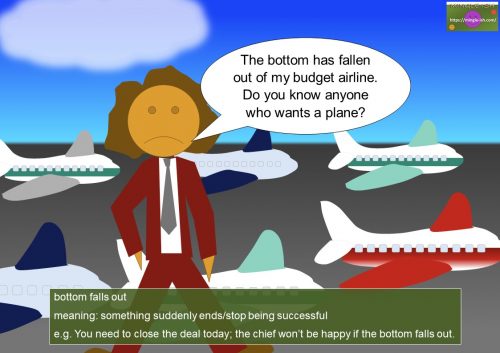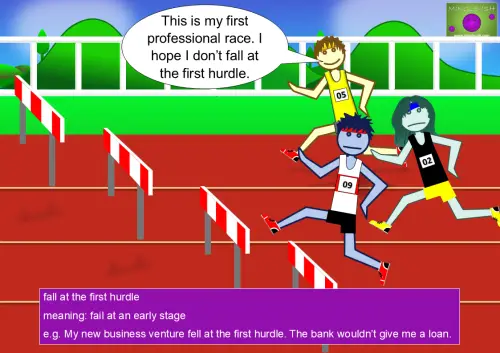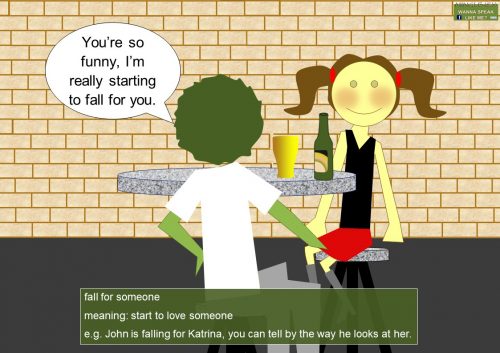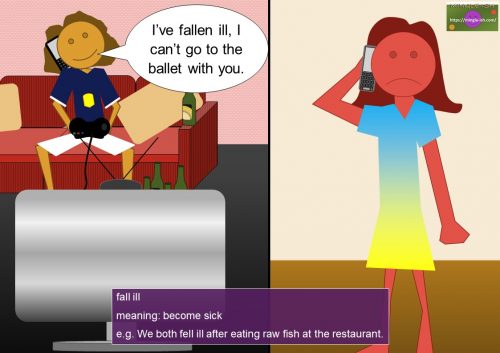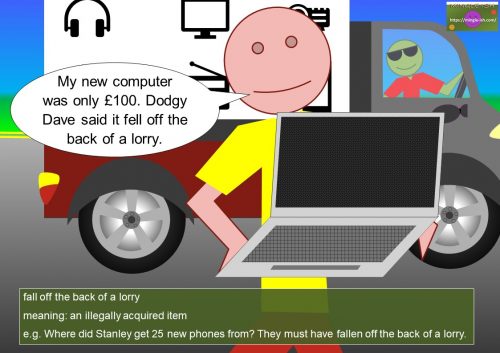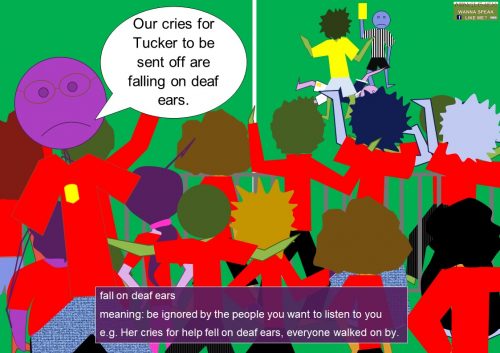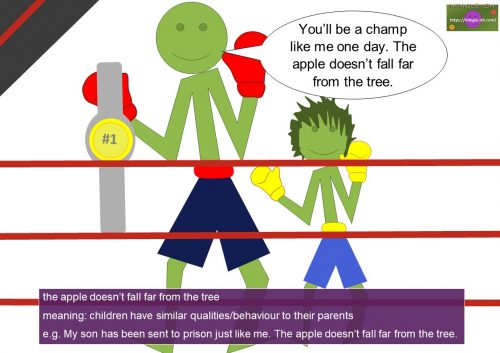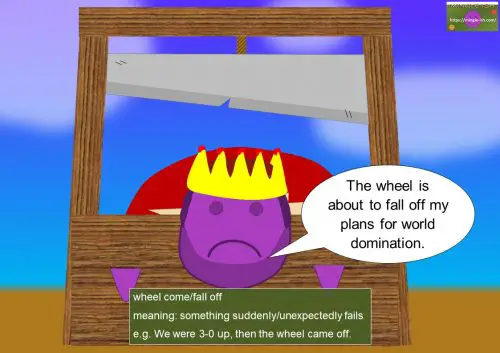The word ‘fall’ can mean many different things. As a verb, the meanings include to lose balance or move to a lower position.
For example:
- I fell down the stairs. (lose balance)
- My team has fallen 7 places in the league table. (move to a lower position)
Fall is an irregular verb. The past tense is fell and the past participle is fallen.
idiomatic phrasal verbs
Did you know phrasal verbs are sometimes used in idioms? See if you can spot any. If you don’t know any phrasal verbs with ‘fall’, click here to learn them.
idioms list with ‘fall’
- bottom falls out – something suddenly ends/stop being successful
e.g. You need to close the deal today; the chief won’t be happy if the bottom falls out. - fall at the first hurdle – fail at an early stage
e.g. My new business venture fell at the first hurdle. The bank wouldn’t give me a loan. - fall for someone – start to love someone
e.g. John is falling for Katrina, you can tell by the way he looks at her. - fall ill – become sick
e.g. We both fell ill after eating raw fish at the restaurant. - fall off the back of a lorry – an illegally acquired item
e.g. Where did Stanley get 25 new phones from? They must have fallen off the back of a lorry. - fall on deaf ears – be ignored by the people you want to listen to you
e.g. Her cries for help fell on deaf ears, everyone walked on by. - the apple doesn’t fall far from the tree – children have similar qualities/behaviour to their parents
e.g. My son has been sent to prison just like me. The apple doesn’t fall far from the tree. - wheel come/fall off – something suddenly/unexpectedly fails
e.g. We were 3-0 up, then the wheel came off.
Let’s see these idioms with pictures and meaning using real-life scenarios.
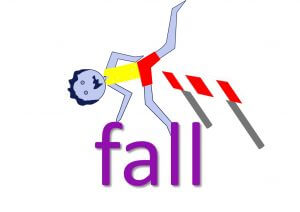
Psst…
Hey, did you know the verb ‘fall’ has many phrasal verbs. Since you like idioms and phrases, you obviously want to improve your fluency and speak like a native.
Am I right?
I thought you might like to learn the phrasal verbs with ‘fall’ too. They are very common in informal English and great to know/be able to understand if you happen to be speaking to a native. We use them all the time, like literally ALL the time.
